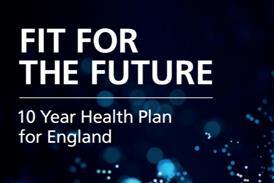- Allegations of bullying and harassment against four executives “unsubstantiated”
- Review cites concerns around poor engagement at the Dudley Group Foundation Trust
- But union claims report was “whitewashed”
Allegations of bullying and harassment against senior leaders at the Dudley Group Foundation Trust have not been substantiated by an independent review.
The review by law firm Capsticks was commissioned in response to a whistleblowing letter to the trust chair from 42 senior clinicians last July.
The letter made allegations of poor leadership, bullying and harassment against the trust’s chief executive Diane Wake, medical director Julian Hobbs, former chief nurse Siobhan Jordan, and head of HR Andrew McMenemy.
The full report has not yet been released. But a 35-page summary, published today, said: “We do not conclude that there is a systemic culture of bullying and intimidation by the trust leadership.”
A union official who represents some of the whistleblowers dismissed the report as a “whitewash”, claiming it had failed to understand the depth of concerns.
Capsticks was not asked to fully investigate individual claims of bullying and harassment, although its reviewers heard a number of allegations of “behaviour perceived as bullying and intimidation”, including specific allegations against the former chief nurse and current medical director. The review concluded none of the claims required further investigation.
The investigation involved interviews with 43 staff members and the four executive directors who were subject to the allegations. As the original whistleblowers were not identified, it is unclear whether they were interviewed.
Key findings identified in the summary report included:
• Some staff, in particular the consultant body, did not feel they were effectively engaged by the trust’s leadership, but this was not a universal view.
• Despite the leadership team encouraging a reporting culture, some staff said they were afraid to report adverse incidents and afraid to use the freedom to speak up process.
• Some evidence of failure to display role model behaviours by the trust board, including incidents of board members using disabled car parking bays.
• Management team structures did not always act as a bridge between the trust leadership team and front-line staff.
Local Conservative MP, Margot James, has called for the full report to be published and told HSJ she is concerned to be told by the trust it will take up to six weeks to make a decision on this.
Ms Wake said the decision not to publish was taken by an independent subgroup of the board including Capsticks, NHS Improvement, and the chair Jenni Ord. She and the other named executive directors have not had any involvement in the report or decision to publish, she said.
Ms Wake added: “I think the things we want to improve upon is around staff engagement. It is important that our staff feel comfortable and able to raise concerns… But also recognising communication is a two-way thing.”
She said she has used disabled parking bays on occasion without a permit, but this was due to a leg injury she had suffered.
Rob Quick, national officer for the Hospital Consultants and Specialists Association, said: “The doctors we represent are incensed by the attempt to whitewash and sanitise the serious complaints…
“I am personally astounded at the poor analysis and failure to understand the depth of the frustration and concern.”
Speaking on the condition of anonymity, one of the whistleblowers told HSJ: “It should be in the public interest that that report should be released, so everyone can form their opinion and respond appropriately.”
The news comes following a series of other reports into the safety of the trust’s emergency department (see timeline below).
The report recommended the trust should: proceed with a planned mediation process; develop a programme of effective engagement with all staff; and review the management structure across its clinical divisions.
Timeline of Dudley Group stories
May 2018: Trust commissions the Royal College of Physicians to review the emergency department.
July 2018: After a follow-up inspection, the CQC publishes a focussed report into the A&E, highlighting serious concerns over staffing levels and failures to spot deteriorating patients.
July 2018: Trust chair receives a letter from 42 senior clinicians raising concerns about executive board members.
August 2018: Trust chair and NHS Improvement commission Capsticks to carry out independent investigation into the claims.
August 2018: Trust commissions independent review into A&E deaths, following the CQC report in July.
September 2018: CQC publishes a second report into the A&E, again raising serious safety concerns. HSJ reveals the trust also received four formal warnings from the regulator from December 2017 to August 2018.
January 2019: The independent review of A&E deaths raises concerns over eight cases, but concludes that more than 90 per cent of the deaths reviewed were unavoidable.
February 2019: Trust chair Jenni Ord announces her departure, after MPs raise concerns over her reappointment.
March 2019: Capsticks report into whistleblowing allegations is published, describing allegations of bullying and harassment as unsubstantiated.
Source
Capsticks report
Source Date
8 March 2019
Review clears trust leaders of 'bullying and harassment'
- 1
 Currently reading
Currently readingReview clears trust leaders of 'bullying and harassment'
- 2




























19 Readers' comments